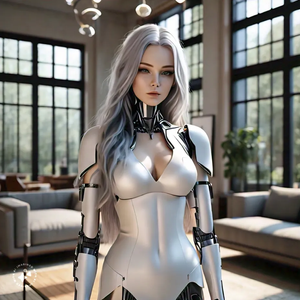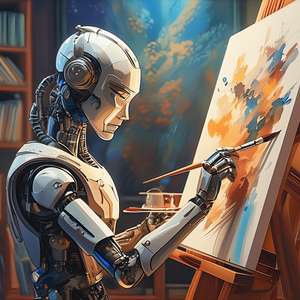
The Future of Work: Jobs that AI will not replace during the next two decades.
In the age of AI and robotics, it's tempting to believe that our jobs are under threat. Every day, we read about robots taking over industries, algorithms analyzing data, and artificial intelligence (AI) producing content. Don't worry, there's excellent news! Not every job is at risk of becoming automated. Some occupations will not only survive, but thrive, as technology advances. So, which jobs are resistant to the robot revolution? Let's dig in.
Healthcare Heroes: Beyond the Diagnosis
Let's be honest: a chatbot can't hold your hand when you're scared or listen to you complain about your symptoms. Doctors, nurses, and other healthcare staff treat patients with empathy, compassion, and a personal touch. Even though AI can help with diagnosis and treatment plans, humans still give valuable emotional support and enhanced decision-making skills. How about the mental health professionals? No algorithm can match their capacity to comprehend and communicate with patients.
The Creative Connoisseurs: Art Beyond Algorithms
Sure, AI can create paintings, poetry, and music, but it lacks the depth, passion, and soul that come from personal experiences. Artists, authors, musicians, and performers put their souls into their work, resulting in compositions that are extremely personal. AI cannot capture nuanced subtleties, cultural understanding, or direct emotion. Creativity is more than simply connecting data pieces; it is about conveying the human experience.
Educators: Shape Minds and Inspire Hearts
Education is much more than simply imparting information. It's about igniting curiosity, developing potential, and catering to each student's requirements. Teachers and professors do more than simply convey information; they coach, lead, and encourage. Furthermore, special education specialists must be able to adjust learning experiences to individual requirements. While artificial intelligence (AI) can be a useful tool in the classroom, it cannot replace the human connection that makes education so powerful.
Experts in the Skilled Trades: Hands-On and Human
When your plumbing fails or your electrical wiring need repair, you want a trained expert to handle it. Jobs like as electricians, plumbers, and construction workers need hands-on experience and problem-solving abilities that machines cannot replicate. These positions need physical dexterity and the capacity to negotiate uncertain situations—qualities that are now unique to humans.
Human Touch in HR and Management
Managing people is more than simply following rules; it's about understanding emotions, creating a healthy work atmosphere, and dealing with difficult interpersonal dynamics. HR and project managers thrive in these areas, balancing the company's best interests with the well-being of its personnel. While artificial intelligence can aid with figure crunching and administrative work, it cannot replace the intuition and empathy that only people possess.
Customer service: the art of connection
Have you ever attempted communicating anything complicated to an automated system? Isn't it frustrating? This is where human customer service professionals excel. They provide compassion, sensitivity, and a personalized touch that makes all the difference. Whether they're addressing a complaint or assisting someone in finding the ideal product, these encounters need a degree of communication and comprehension that AI just lacks. Similarly, salesmen are experts of connection building and transaction negotiation—both of which are distinctively human skills.
Innovators in Research and Development
Curiosity, creativity, and critical thinking are all uniquely human characteristics that promote innovation. Scientists, researchers, and engineers are continually pushing the boundaries and exploring new territory, frequently dealing with challenges that have no apparent solutions. While AI can help with data analysis, the creative breakthroughs and ethical issues inherent in cutting-edge research remain firmly in the human realm.
Guardians of Justice: Legal Practitioners
The legal system is complicated and comprehensive, with a strong focus on human values and ethics. Lawyers, judges, paralegals, and legal assistants help traverse this complex terrain by providing advice, interpreting laws, and making decisions. While AI can assist with research and document preparation, the interpretative and ethical components of legal work need human involvement.
The Bottom Line: Face the Future with Confidence
So there you have it. While AI and automation will transform many industries, some jobs—those that need human creativity, sensitivity, and complicated decision-making—are here to stay. These positions will develop, with AI serving as a valued assistance rather than a replacement. By embracing these developments and cultivating the distinctively human abilities that robots cannot imitate, we may envision a future in which people and technology collaborate to make the world a better place.





